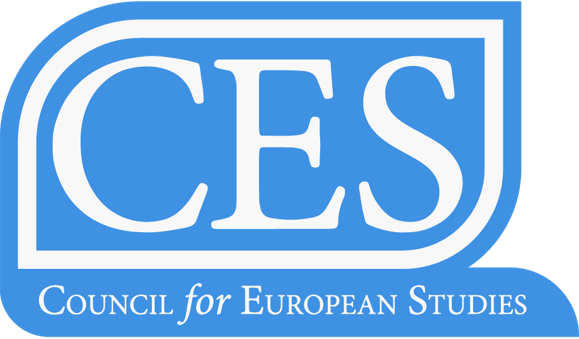April 2nd, 2017
Viktor Orbán
Prime Minister
1357 Budapest, Pf. 6./Hungary
E-mail: miniszterelnok@mk.gov.hu
Prime Minister Orbán:
On behalf of the Council for European Studies (CES), an academic consortium of more than 100 member institutions worldwide and over 1600 individual members, we would like to express our deepest concern over your intention to draft legislation that directly threatens to close down Central European University (CEU). We support rector Michael Ignatieff and his public statement that CEU is an accredited institution in both Hungary and the United States and that his institution is operating legally, thereby providing a world-class education to 1,440 students from 107 countries.
It is the mission of the CEU to produce renowned interdisciplinary and cross-cultural research, and it has long been one of the most respected institutions of higher learning in Central Europe. Legislation against CEU raises serious questions about the future of higher education and research as well as academic freedom in Hungary.
We therefore hope you will reconsider this legislation and reaffirm Hungary’s commitment to remain part of the European and international community of educators, researchers and students.
Sincerely,
Sheri Berman, PhD
Chair of the Executive Committee
Jan Willem Duyvendak, PhD
Incoming Chair
Julia Lynch, PhD
Treasurer
Karen Anderson, PhD
Erik Bleich, PhD
Orfeo Fioretos, PhD
Evelyne Huber, PhD
Isabela Mares, PhD
Deborah Reed-Danahay, PhD
Alberta Sbragia, PhD
Nicole Shea, PhD
24 April 2017
Dear European Parliament, European Commission and Government of Hungary:
We write to you as the Directors of Centers for East European, Russian and Eurasian Studies across the United States, in Germany and in the United Kingdom. As scholars and experts on the region, we forcefully protest the recent amendments to the Hungarian National Higher Education Act that pose an existential threat to the Central European University in Budapest. These actions threaten academic freedom across the region and in Europe as a whole.
We join the vigorous protest from observers around the world: academic, intellectual and political leaders in Europe, the US and globally who most vehemently object to this assault on the CEU. This legislation constitutes a violation of freedom of speech and of inquiry. It is unwarranted interference in a private educational institution that has been operating productively and with careful observance of Hungarian law for over 25 years.
We respect and admire the academic excellence of the CEU, the great contributions that it has made to Hungarian, European and global scholarship. The CEU is a valued member of the international academic community. It has nourished cooperation across countries through the training of young people from Hungary and the entire east European region. As an English-language university accredited in New York State as well as in Hungary it has enabled young people from Hungary and other parts of the region to more effectively participate in business, governance, scholarship and law both nationally and internationally. It has complemented and enhanced other institutions of higher education across the region.
The CEU has added to Hungary’s status on the international stage, supporting Budapest’s and Hungary’s artistic, scholarly and economic growth, furthering the city’s and country’s powerful heritage of intellectual life. This attack goes against Hungary’s long-term interests and its tradition of excellence in higher education. It damages Hungary’s strong academic reputation and its relationships with European partners and the United States.
We call on the Hungarian government to rescind this legislation; to recognize the CEU; to provide a stable legal basis for its open and innovative intellectual inquiry and to enable the continuation of the CEU in what has been a productive cooperation with the Hungarian government, beneficial to the young people of the region, for a quarter century.
We stand in solidarity with the students and faculty of the Central European University.
Sincerely yours,
Prof. Susan Gal (Anthropology and Linguistics)
Director, Center for East European, Russian and Eurasian Studies,
University of Chicago
Prof. Dr. Martin Schulze Wessel (History)
Ludwig-Maximilians-Universität, München
Graduiertenschule für Ost- und Südosteuropastudien
Prof. Geneviève Zubrzycki (Sociology)
Director, Weiser Center for Europe and Eurasia, CREES, CES, CPPS
University of Michigan
Prof. Julia L. Mickenberg (Amerian Studies)
Acting Director, Center for Russian East European and Eurasian Studies
University of Texas at Austin
Prof. David L. Cooper (Slavic Languages and Literatures)
Director, Russian, East European, and Eurasian Center
University of Illinois, Urbana-Champaign
Prof. Theodore P. Gerber (Sociology)
Director, Center for Russia, East Europe, and Central Asia
University of Wisconsin-Madison
Prof. Jan Kubik (Political Science)
Director, School of Slavonic and East European Studies
University College London
Prof. Rawi Abdelal (International Management)
Director, Davis Center for Russian and Eurasian Studies
Harvard University
Prof. Pavle Levi (Art and Art History)
Director of Center for Russian, East European and Eurasian Studies
Stanford University
Prof. Sarah D. Phillips (Anthropology)
Director, Russian and East European Institute
Indiana University
Prof. John Connelly (History)
Director, Institute of Slavic, East European and Eurasian Studies
University of California, Berkeley
Prof. Jill Bystydzienski (Women’s, Gender and Sexuality Studies)
Director, Center for Slavic and East European Studies
The Ohio State University
Scott Radnitz (International Studies)
Director, Center for Russian East European and Centra Asian Studies
University of Washington


